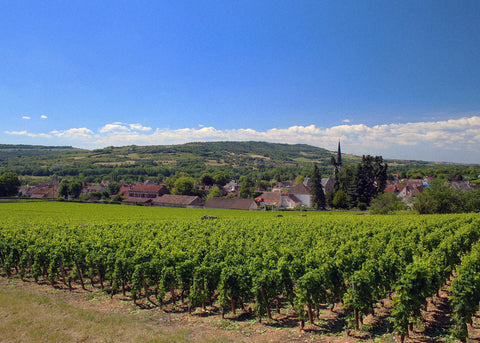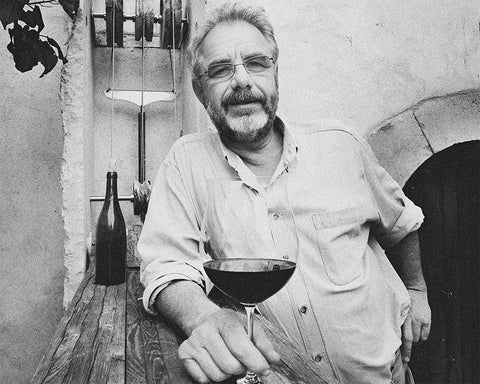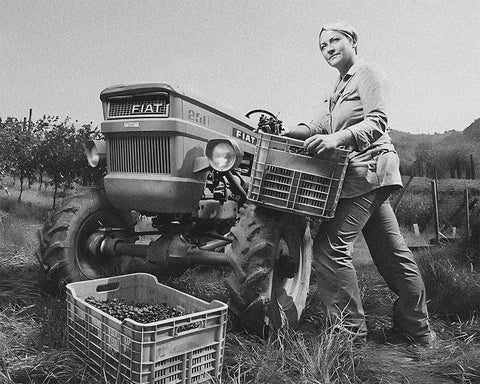An Introduction to the World of Négociant Wines
Wine, a beverage steeped in tradition, culture, and artistry, has its unique lexicon. Among the myriad terms, 'négociant' stands out, especially when discussing the business and production aspects of the wine industry.
This article delves deep into the concept of négociant wines, tracing their historical significance, and their intersection with the natural wine world. To facilitate a structured exploration, we present a table of contents for easy navigation through these topics.
Table of Contents
- The Historical Role of Négociants
- The Intersection of Natural and Organic Practices with Négociant Wines
- Advantages of Opting for Négociant Wines
- Conclusion
The Historical Role of Négociants
Historically, a négociant, derived from the French word 'négocier' meaning 'to negotiate', is a wine merchant who assumes a unique role in the production process.
Unlike traditional vineyard owners or winemakers who cultivate grapes and produce wine from their vineyards, négociants acquire grapes, must (freshly crushed grape juice), or even fully matured wines from other growers or producers. After acquisition, they then bottle and commercialize these wines under their labels.
The négociant system has deep roots, particularly in the wine regions of France. The system emerged as a solution to various challenges faced by vineyard owners, including the complexities of bottling, marketing, and distribution.
This collaborative approach allowed smaller producers and growers to focus on cultivating their vines and perfecting their wine, leaving the business intricacies to the négociants who had the necessary resources and market reach.
The Intersection of Natural Wine and the Négociant Model
The Négociant model is quite prominent in natural wine – next to estate-grown wines made by vignerons, we have a plethora of Négociant projects. There are all kinds of variations in this model but essentially, the Négociant is not the same person who tended the vineyards, harvested the grapes, made the wine, and sold the wine. Some important distinctions are necessary here.
There is a big difference between the pure Négociant, who is not involved in any of the wine production steps, except for marketing and sales, and a Négociant-Manipulant. The 'Négociant-Manipulant' (NM), prominent in the Champagne region of France, buys grapes but also takes charge of the winemaking process, differentiating them from négociants who might not be involved in the production.
This is the prevalent Négociants model that we so often find in natural wine, next to the so-called Vigneron Indépendant – the independent vintner. Natural wine Négociants are usually involved in the winemaking process, where they adopt a low-intervention approach, and source grapes from organic, biodynamic, or regenerative agriculture farms. As such, Négociants play an important role in the natural wine world. Let's see what are the pros and cons of this model.
Advantages of Opting for Négociant Wines
The négociant model offers several advantages, to grape growers, winemakers, and consumers. From the producers' perspective, partnering with a négociant can provide access to broader markets and distribution channels that might be challenging to tap into independently. This is especially beneficial for smaller vineyards or those new to the industry.
For consumers, négociant wines often present an opportunity to experience high-quality wines from prestigious regions at a more accessible price point. Given that négociants can blend wines from various sources, and can be very selective with the grapes they buy, they can achieve consistency and quality at a lower price. Additionally, the expansive reach of some négociants means that consumers have access to a diverse array of wines, both in terms of flavor and origin. A Négociant can source grapes or wines from several different wine regions within a country.
Is there a drawback in this model? To some people, only independent vintners are the bearers of a pure winemaking and farming ethos, supervising the entire production process from the vineyard to the cellar, and lastly to the table of a prestigious restaurant or the shelves of exclusive retail shops. Is this a cogent argument? To an extent it is, but read the conclusion and see what I think.
Conclusion
In my opinion, and here I'm writing as a natural wine retailer, the Négociant model is vital to natural wine. Négociants, generally speaking – there are of course exceptions – can produce well-made, natural wine with some scale. The independent vintner model is what brought me to natural wine, true. My first love, and what I grew up with. However, producing an incredibly small amount of nearly impossible-to-find, very expensive wines has only one result: those with means, who live in the world's natural wine hotspots are going to be the only customers able to access them. I haven't heard a solid argument against this fact. I, one of the biggest online natural wine retailers in California, have a hard time finding some wines, so small is production, so coveted, so deep the gatekeeping. Utmost elitism. Unless you are in some circles, or you literally will never be able to drink certain wines.
Natural wine was never meant to be exclusive. Price and availability are determinants. Négociants try to bridg this ever-widening gap. Sure there can be some opportunism but in my experience is not very common. Where there is, it should be called out, but unless ones has very precise data about the percentage of négociants who are just money-hungry opportunist vis-a-vis the good ones – data, numbers, names, in-depth research on malpractice – or we shouldn't look suspiciously at négociant wine perched up on some kind of natural wine intelligentsia pedestal. Lastly, 90% of California's natural wine producers are Négociant-Manipulant. Buying a vineyard in California is quite literally impossible unless one is a millionaire or can access great sums of capital. Most of California's natural wine producers buy grapes farmed by someone else. Salute to all négociants!










